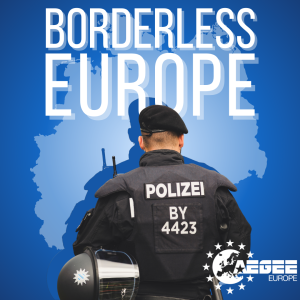
In addition to Germany – Austria, Slovenia, Italy, Norway, Sweden and France have all implemented such measures over the past six months [1], citing concerns over security, migration control and public safety as reasons for these actions [1]. All these facts combined signal a growing trend that indicates a significant shift in European mobility and border control. AEGEE is deeply concerned by this pattern, as these so-called extraordinary measures are increasingly being normalised without sufficient justification, threatening the future of free movement within the Schengen Area.
As outlined in the European Parliament’s document “Temporary Border Controls in the Schengen Area”, reintroducing border controls should only occur in response to a serious threat to public policy or internal security, and even then, it must be a last resort in exceptional circumstances [2]. Despite these regulations, Germany has started temporary border checks, in AEGEE’s judgement, without the presence of a significant threat.
It is important to highlight that reintroducing border controls within the Schengen Area risks undermining the fundamental values of unity and trust that the European Union seeks to promote. These controls could undermine the spirit of free movement, one of the EU’s core principles, fostering division and suspicion between member states. Increased border checks may also lead to discrimination, as certain groups could face heightened scrutiny based on nationality or ethnicity.
AEGEE is deeply alarmed about the increased border checks and undermining of the Schengen agreement, as they directly contradict one of our fundamental principles: that of a borderless Europe, where individuals can move freely without restriction.
Based on the aforementioned, AEGEE-Europe calls upon the European Commission:
- for the limited usage of temporary border control measures;
- for recognition of the importance of free movement within the Schengen Area as a foundation of European unity;
- for better coordinated European Union-wide efforts to manage migration and security threats.
References:[1] https://home-affairs.ec.europa.eu/policies/schengen-borders-and-visa/schengen-area/temporary-reintroduction-border-control_en
[2] https://www.europarl.europa.eu/RegData/etudes/ATAG/2020/649336/EPRS_ATA(2020)649336_EN.pdf

